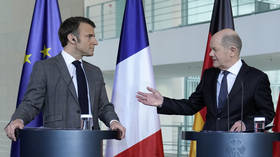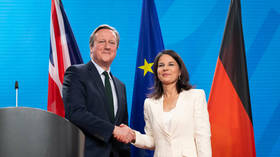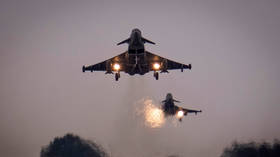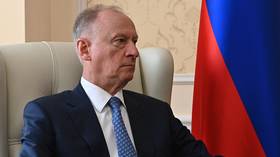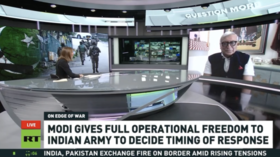Germany backs French push to arm Ukraine with long-range weapons
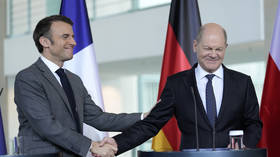
European countries intend to create yet another “capability coalition” to supply Ukrainian forces with long-range weapons, German Chancellor Olaf Scholz said on Friday, echoing an initiative floated by French President Emmanuel Macron.
During a joint press conference with Macron and Polish Prime Minister Donald Tusk in Berlin on Friday, the German chancellor stated that the countries have agreed to expand their own production of military equipment and “procure even more weapons for Ukraine, on the overall world market.”
“We are establishing a new capability coalition for long-range rocket artillery,” Scholz told journalists. The German leader provided no specifics and took no questions, so it remains unclear whether he meant something new, or was referring to a “long-range” initiative announced by Macron last month.
Following a summit of Ukraine’s backers in Paris, Macron said that France would lead a new coalition that aims to provide Kiev with “medium and long-range missiles and bombs.” Much like many previous Western “capability coalitions” focused on drones, artillery, air defenses and others, the new group seeks to unite those who want to boost Ukraine’s specific ability to “carry out deep strikes,” the French leader said at the time.
It remains unclear what new types of weapons Kiev’s foreign sponsors could supply, as the UK and France have already been providing their Storm Shadow and SCALP-EG long-range cruise missiles since last year, with Macron pledging another 40 missiles in January. The US also sent some of its ATACMS missiles, but Kiev has already depleted the limited supply, and has repeatedly called for additional weapons amid the suspension of American aid.
Scholz has so far refused to send German-made Taurus missiles to Ukraine in order to avoid the risk of a direct conflict with Russia, resisting pressure from foreign partners and some politicians at home.
On Wednesday, Scholz again insisted that the delivery of Taurus missiles was “a line that I don’t want to cross as chancellor.” He explained that such a shipment would inevitably require the presence of German military personnel on Ukrainian soil – a development that is “out of the question.”
